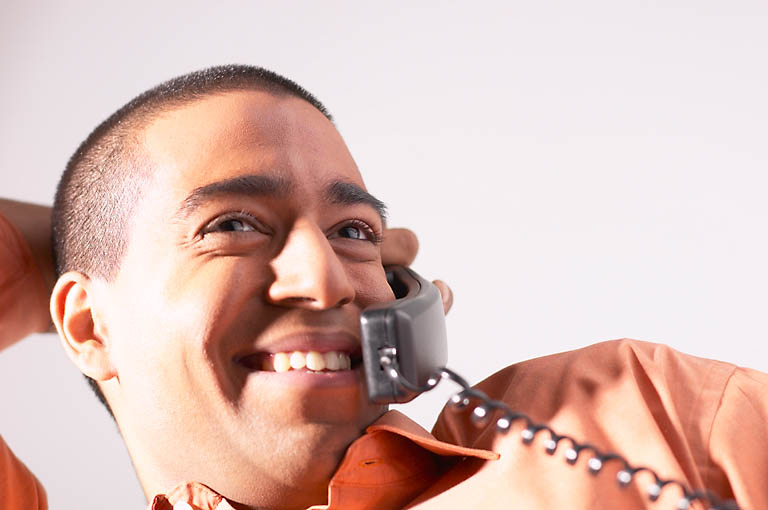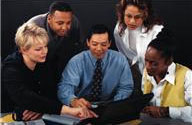Intuition–Our Handiest Tool
We all have within us the absolute finest tool that anyone could want – our intuition. No matter what other assets we have at our disposal, regardless of how much we have, or how sophisticated our other resources may be, nothing surpasses that which lies at the core of consciousness.
Intuition is that mysterious force within each human being that is able to access knowledge without logical or perceptual input. Our intuition is able to extend beyond our physical methods of acquiring information. It has been called our sixth sense, a hunch, an inkling, instinct, premonition, or having a “gut feeling.” Each of these approximate synonyms suggests that the seat of intuition may not be so much in our minds, but in our bodies. People will say, “I just had a feeling…” Emotions are primarily perceived physically, and so it is with intuition.
Intuition almost seems to come from nowhere, and may often contradict what our logic would suggest. At times we will think we should choose one option, but a tightness in our stomach or chest tells us that a different choice would work better for us. Some people might call this their higher self or spiritual intervention; others might say this is an inherent tool that all sentient beings have when the mind is quiet enough. But one thing is certain, intuition is a skill that can be learned, or reawakened, and enhanced.
Intuition helps us avoid many heartaches and wrong turns. It can be an amazing timesaving device, because it bypasses such logical sequencing as research and trial-and-error. It takes us directly to a solution. Einstein once explained that he rarely worked out his complicated formulas from theory, but rather, the solutions came to him intuitively, after which he then proceeded to layout the proof. Many successful individuals acknowledge that much of what they do “just comes to them” and that it is as much intuition as it is training which makes their success. Sometimes, when we pay attention to our intuition, we have an inner knowing of how to proceed and do not need to go through the tedious process of trying to figure out what to do.
Interest in developing intuition is on the rise. It has long been a pursuit in spiritual quarters, but more and more, the business world is now looking at intuition as a resource, because it can cut so many wasteful corners. As a corporate trainer, I have watched this change towards support of inner resources over the past few years. Organizational development experts now commonly offer classes in intuition to corporate executives. (Companies are now also providing more and more forms of emotional support to employees.) With my counseling clients I see a shift in consciousness as well, in that people more commonly come in today with a sense that the solutions to their problems lie within – and they want to learn how to access that inner knowing. I am less and less the resource, and more the facilitator of discovering inner solutions. And, as a mental health practitioner, I find this to be a very healthy direction in our society.
Intuition is not difficult to develop, but it does take attention and practice. In a nutshell, it involves quieting the mind and listening to the body. Industrialized society has not put a premium on these two skills, although there are cultures that do, particularly eastern and indigenous ones. In the Orient, where external physical conditions were often intolerable, developing internal skills became a valued goal and a means to rise above conditions. With indigenous cultures, the quiet and sensing attention to a wild and challenging physical world was often the means to survival. Interestingly, in both, spiritual life became central to the cultures.
But the modern industrialized world has less need for such skills, and thus they have, to some degree, fallen away. Yet they are there, latent, and in a time when people often feel disconnected and disenfranchised, the development of intuition is not only a time-saving device, but a soul-saving device as well. It strengthens our inner life and is our best tool in connecting to the external world, bringing confidence, comfort, faith, safety and contentment.
A report after the late-December Tsunami tragedy revealed that very few wild animals were harmed in the devastation. A skill that humans sometimes ignore, but animals use for survival, is sensing, or listening with all of their faculties. Living a life attuned to the subtleties of movement of currents, winds, smells, sounds and other animals, almost all of the wildlife moved away from danger long before it arrived. This quieting of our minds and listening through our bodies is an ability that we, as humans, still have but simply need to bring back into focus. That is not to say that we will ever have the visual acuity of the eagle or the olfactory capacity of a cat, but we do inherently have their ability to become quiet inside and sense what surrounds us.
We can learn to feel into a situation. We can practice listening with our bodies. We can undertake to silence the inner dialogue that attempts to decide or judge or know, rather than learn. We can hone our observation skills and put less of a premium on knowing it all. We can seek to become a blank page, willing to receive whatever impressions come, rather than being a finished book. We can learn to be still until the “Ah-ha!” drops in.
In the early 1990’s I was at a crossroad in my life. So, taking the metaphor to heart, I hit the highway. Living in Houston at the time, I decided to drive up to Arkansas. But I didn’t know anything about the area, so I gave myself a challenge: Instead of following maps, I would simply feel which way to turn at each intersection. Sometimes I would sit for many minutes at a crossroad sensing which direction “felt better.” My intuition took me through Hot Springs, Petit Jean State Park, up what I now know as the Pig Trail, in and around Eureka Springs, and finally to Fayetteville, which would soon become my home. It was one of the most spectacular journeys of my life, for I stayed the entire time in the magic of the moment, and constantly discovered what wonderful places my intuition would take me.
So next time (or every time) you need to discover your options, or make a decision, or access some information, try this:
First, listen carefully to the silence. Don’t worry if no information comes, just keep listening. In time, you will know. The answer may just drop into your mind, or perhaps it will come from some other place—something you read, something someone says—as long as you stay in listening mode.
Second, pretend you have ears in your heart and/or in your stomach. Be very still and let those “gut” senses communicate whether something will work for you or not. Try on the different options just as you might put different discs into a CD player, and see how each alternative feels.
Finally, practice actually trusting what your intuition tells you. In time, you will discover a rich inner resource that surpasses understanding.











